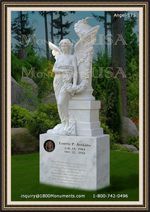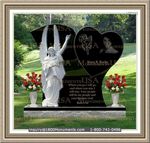|
Details You Should Know When Writing An Epitaph
There are a great number of details that must be attended to when setting up funeral arrangements. Unless someone plans ahead, these responsibilities are usually left to a trusted individual, or to multiple members of the deceased's family. Composing a fitting epitaph is just one of the many tasks that will need to be handled.
This is a brief statement or phrase, sometimes a poem or prose, that is inscribed on an individual's headstone or commemorative plaque. It says something about the person it represents. There are several different forms this tribute can take, mostly dependent on the deceased's personality, life choices and who is writing it.
There are some things that practically each grave marker will have in common. Nearly all will contain the person's full name and the dates that encompassed their life. Though a good many individual's choose to stop at just that basic information, others will opt to say a little extra by including statements, sentiments or personal remarks.
Traditionally, these inscriptions are short, touching sentiments stating what the individual meant to those who loved them or wishing them a peaceful rest. Sometimes they attest to what a loving spouse, parent, child or sibling they were, or mention their time in military service. Another popular choice is to use their favorite religious scripture.
A growing number of people are making the choice to write their own goodbyes. By doing so they are able to express themselves more accurately and use a bit of creativity if desired. People with an elevated sense of humor find this to be the perfect opportunity to leave people smiling one last time.
Another approach many people take when composing their inscription is to leave a final bit of advice to those who read their marker. They may warn against taking life for granted or suggest that the living make the most of every moment. There are no limitations as to what one might choose to place on their stone.
|
|



























